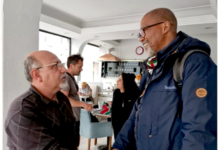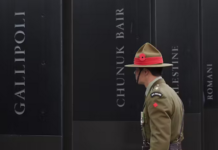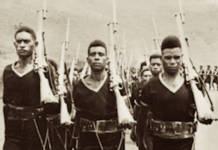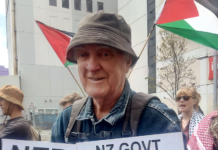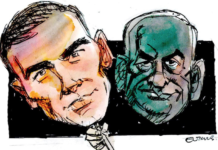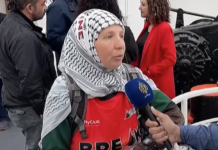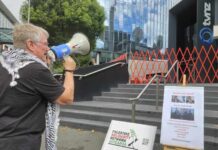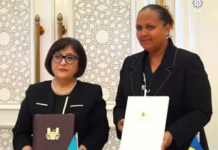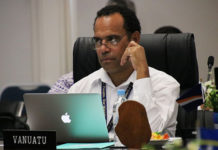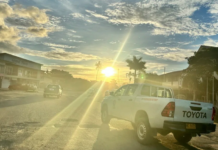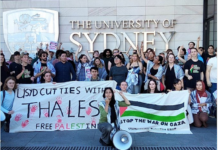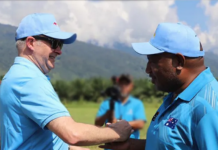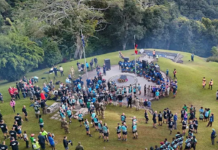Ramadan is the most blessed month of the Islamic calendar. It began on the April 1 and will end sometime in the next day or two when the crescent moon is spotted in the night sky.
The month is observed by Muslims worldwide as a time of fasting, prayer, reflection and community.
To explain how she will be celebrating the end of Ramadan is Zainab Baba.
In addition to fasting through Ramadan, Baba and her family have also been caught up in the omicron wave.
“It’s been a bit eventful — my family has actually caught covid in the last week or so.”
Baba is “feeling OK” despite a little bit of a cough, she says.
The end of Ramadan is marked by the crescent moon appearing in the night sky signifying the end of the lunar cycle and the beginning of Eid al-Fitr, the festival of breaking the fast.
Don’t always know the exact day
“So we don’t always know the exact day of Eid, which is the kind of celebratory day in which the month is over, so it all depends on the moon sighting.”
What makes Ramadan so important for the world’s Muslims?
“Ramadan is basically one of the most holy months of the Islamic calendar. It’s obviously signified by the fasting that we do from sunrise to sunset every single day,” she says.
“You fast to show your self restraint, I guess. You’re showing that you can kind of overcome these low-level desires that you might have.
“So not only are you abstaining from food and drink, which obviously has many health benefits as most people who do intermittent fasting know, but also you’re committing to kind of staying away from things that maybe you know aren’t good for you.
“In a social way, you’re trying to be kinder, more compassionate in all kind of aspects of your life through the choice to commit to being the best version of yourself as possible.”
Commitment to higher values
It’s a commitment to higher values, she says.
“So you’re not only fasting from the physical kind of food and drink but also just from anything that is not good for you or for those around you.”
In their fasting, from sunrise to sunset those taking part in Ramadan won’t drink or eat anything at all.
“It’s a full fast. But after sunset obviously and before you start your fast at sunrise you can eat whatever you need to.”
Foods like oats in the morning or dates in the evening are often eaten, Baba says.
“This month’s all about community so even when you break your fast at the mosque or with community members usually you’ll see there’s very nice dishes prepared.”
Those who cannot fast for health reasons are encouraged to take part in other ways.
Replacing the fast
“That’s perfectly normal, so basically in Islam anyone who can’t fast for health reasons … instead of that, you can donate money or meals to the poor. You’re kind of replacing it with that.
“Things like charity and stuff are really encouraged. It’s meant to heighten your understanding of what people might be going through when they don’t have access to food and drink.”
Ramadan might end on Sunday or Monday, depending on the moon.
Baba is already looking forward to the meals.
“I’m from Kashmir, so my Kashmiri food is definitely at the top of my list.”
While New Zealand is still in orange alert levels and omicron is on the scene, this year’s Eid celebrations will be somewhat more open than the past few.
“Those of us who have had covid or are fully vaccinated are excited to be celebrating in Eid with the community especially after a couple of years of not being able to.
“I think this is going to be really fun for everyone to finally be celebrating together.”
This article is republished under a community partnership agreement with RNZ.


